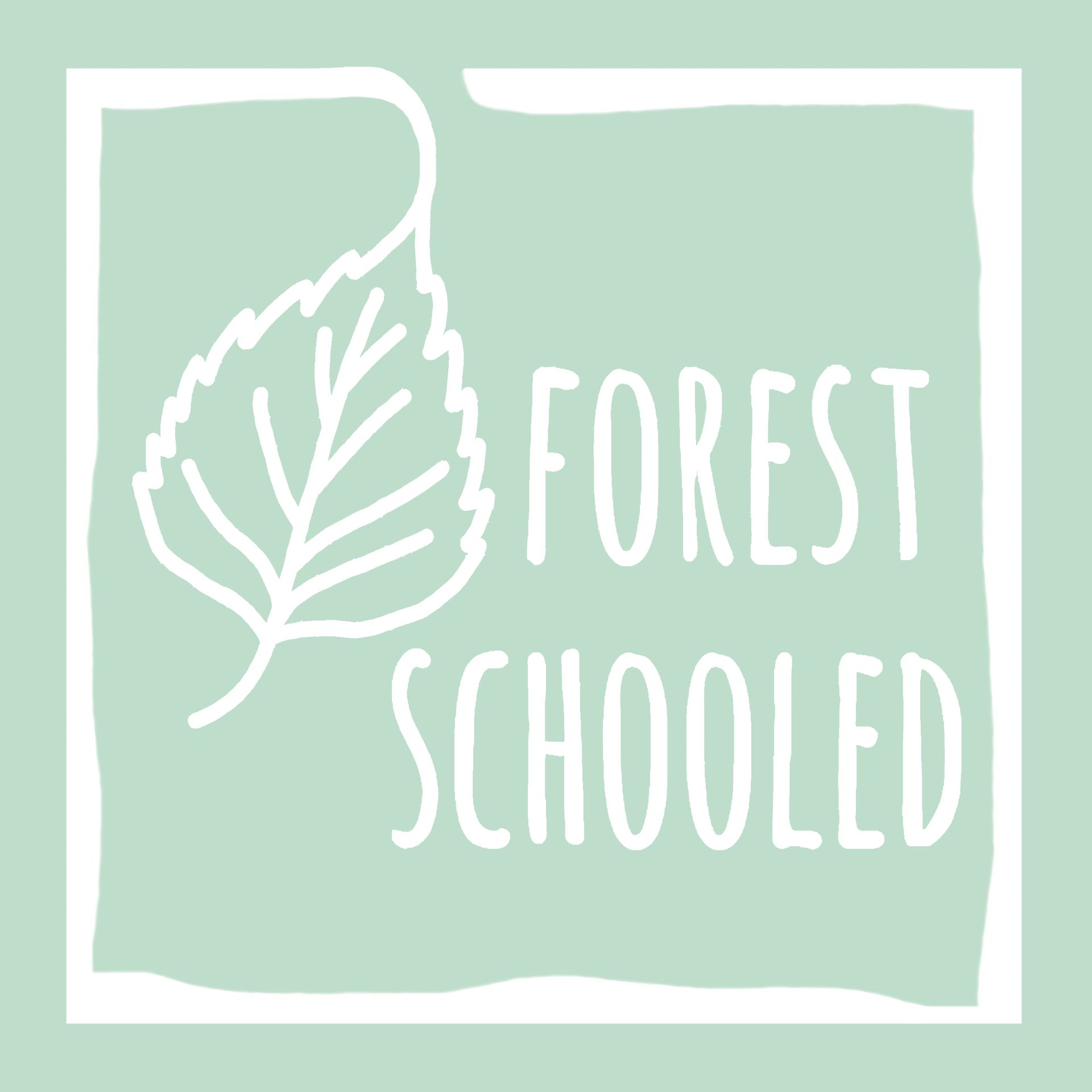
Blog
Stories from my personal journey learning about and delivering Nature-rooted programs across three different countries
How do we advocate for more Nature programs, like Forest School?
Caylin (Forest Schooled)
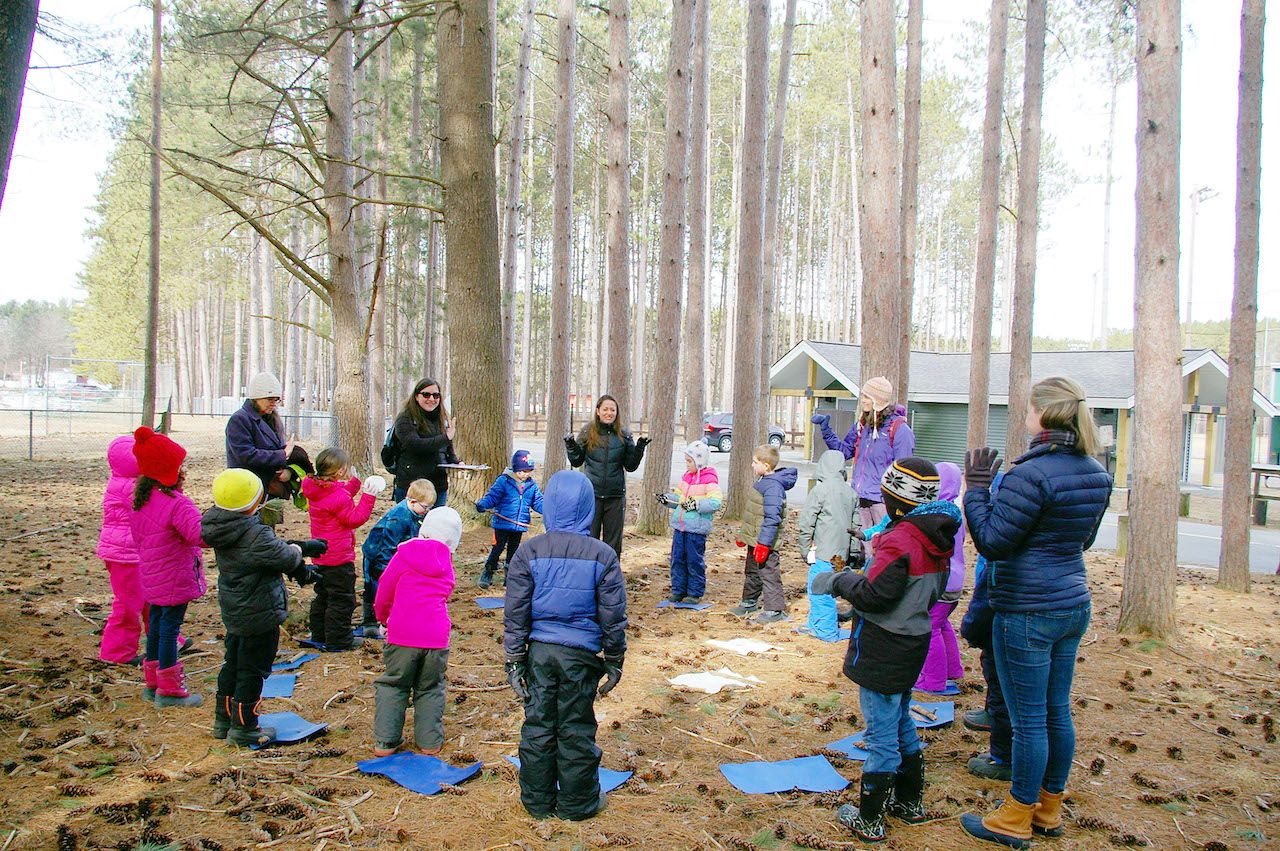
Empty space, drag to resize
Short on time? Listen to this blog post as a podcast. And subscribe to my podcast channel on Apple Podcasts, Google Podcasts, or Spotify.
I was sitting in a wooden chair at a table in the school principal's office wondering how it all happened so fast to get me here.
No, I wasn't in trouble if that's what you're thinking!
I had been asked to join a meeting organized by a parent of two children who attended the school. It was all a bit of a blur how I'd become involved. I'd only just moved to the area (and the country!) six months prior and barely knew anyone.
But because I had reached out to one person who ran a Nature School, my name had been passed forward (with my permission) to this parent who was determined to bring more Nature-based programming to the public elementary school her children attended.
Before I knew it, a date and time had been set, and a group of us were gathered around the table - me, the parent, the principal, a member of the district school board, and a professor of education from the local grad school. On that day we birthed a new program that would bring a group of children out into the forest after school to play and learn at least one day per week for two years. The school hired me as the program coordinator and subsidized costs for parents and caregivers.
That was the beginning of TRACKS, my first business of sorts leading outdoor programs for children in Keene, New Hampshire.
In the two years I lived there, I was able to start two additional programs with the help of some wonderful friends, one in partnership with a non-profit educational farm on Saturdays, and the other with another public school to take their three Kindergarten classes out for "Forest Days" one morning per week.
Now, I'm not saying starting a program is always as easy as that! When I moved to Canada afterwards I seriously considered starting all over again (you can read about that journey here), and I've ended up finding my way into partnership with an already established organization offering long-term Nature programs.
But there are lots of things I learned along the way that have helped me to advocate for more Nature programs (like Forest School) wherever I live.
Now anyone who's familiar with my approach to business will know I'm not one for keeping secrets from supposed "competition." In fact, in designing my business I look to the natural world for inspiration. Though we are led to believe that plants and animals are in competition with one another, there are actually many more mutualistic relationships than we might think.
"Mutualism is defined as an interaction between individuals of different species that results in positive (beneficial) effects on per capita reproduction and/or survival of the interacting populations." - ScienceDirect
Because it supports my overall personal and business vision, mission, and dream to increase access and equity in Nature programs, and beyond, I'd like to offer some of what I've learned about advocating for more Nature programs in the places I live. My hope is to inspire MORE opportunities for humans from all walks of life to immerse themselves in their greater ecological communities.
So, here we go!
- Get confident with what you know (I'm talking brain and intuition here) so that you may comfortably "stand in your own boots!" as one of my friends and mentors would say. For me, I completed a Forest School qualification and an MSc in Environmental Education (a massive privilege I know! And perhaps a bit overboard depending on your hopes and dreams). My point is, find ways to learn skills and knowledge to help you feel confident that you know what you're doing, can do it legally and safely, and can inform others about it too. Confidence goes a loooooong way in persuading others that what you hope to create is worthwhile! If you need it, this could be through obtaining qualifications, attending courses, sourcing mentorship, and getting hands-on experience.
- Find your allies. The educator who passed my name on, and the parent who organized the school meeting were two movers and shakers who helped me enormously! Find others who are doing, or care about, similar things as you and see how you can support one another.
- Depending on the scale of your program, it can be helpful to create a program proposal. (Note: If you’re working on a larger project, you may want to create a business plan - see my short course Planning Your Nature-based Business for more information).
This is an example and template for the proposal I wrote for the after school program I introduced at the start of this blog post! It outlines some of the research that backs up my approach, gives a brief description of what the program entails, and lists some of the details that need to be negotiated in the planning stages. It's only 3 pages long and is designed to provide succinct information to gather initial support for a program from members of a school board, teachers, parents or whoever else you think would benefit! Feel welcome to use and adapt it if you wish.
- There's also much more recent research that's come out since I wrote that proposal, so I recommend accessing the NAAEE and Children & Nature Network collaborative Research Library for research about environmental literacy, the benefits of connecting to nature, fostering environmental behaviours, and more.
I'm also including a brief video I made back in 2020 with some tips and tricks on writing program proposals!
Write your awesome label here.
- Another very powerful advocacy tool is program evaluation... does that sound a bit daunting??? I think it does! Program evaluation is a whole sector in and of itself... as in there are people with full-time jobs as evaluators. I took a semester long course in grad school on Program Evaluation in Environmental Education, and though this was just a taster really, it gave me the skills to create small scale evaluation plans for my programs, collect "data" (I'll talk about why this is in quotation marks in a sec), and demonstrate that my programs were having real and significant impact!
I put "data" in quotations because I've come to view data collection more as harvesting stories... as someone with a deep love and passion for storytelling maybe this doesn't surprise you. For example, some of the "data" I collected were the children's stories at the end of the day. I would ask them to share a "bark" (something that challenged them) and a "spark" (something that excited or inspired them).
I tried to do this at the end of each session, and jotted down a few notes. Over time, I was able to look through them for any patterns, and voila!, themes emerged that informed my evaluation.
Please note that it is very important to obtain consent from anyone participating in an evaluation before you do it! I asked both the parents and the children, and respected the wishes of anyone who did not want their responses recorded.
Not only did the evaluation reports support increasing funding for programs (such as hiring more staff), these reports also now serve as evidence of program impact that I could include in any proposals for future programs too.
And you can too! I know not everyone has the time and capacity to write evaluation reports this extensive.... so feel welcome to access the two I created for the after school program and for Kindergarten Forest Days at a public school. You can download them and see videos that go with them on my Projects & Programs page.
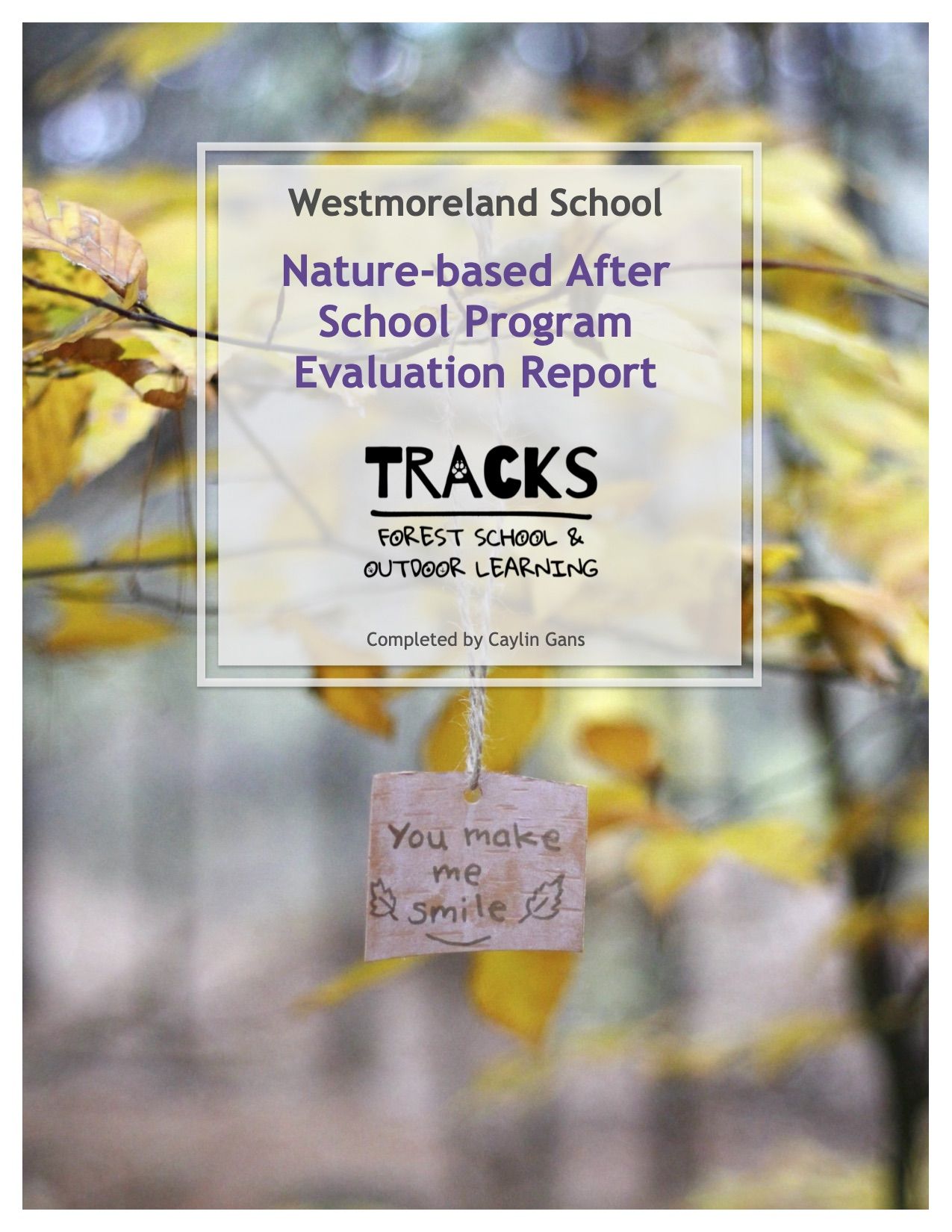
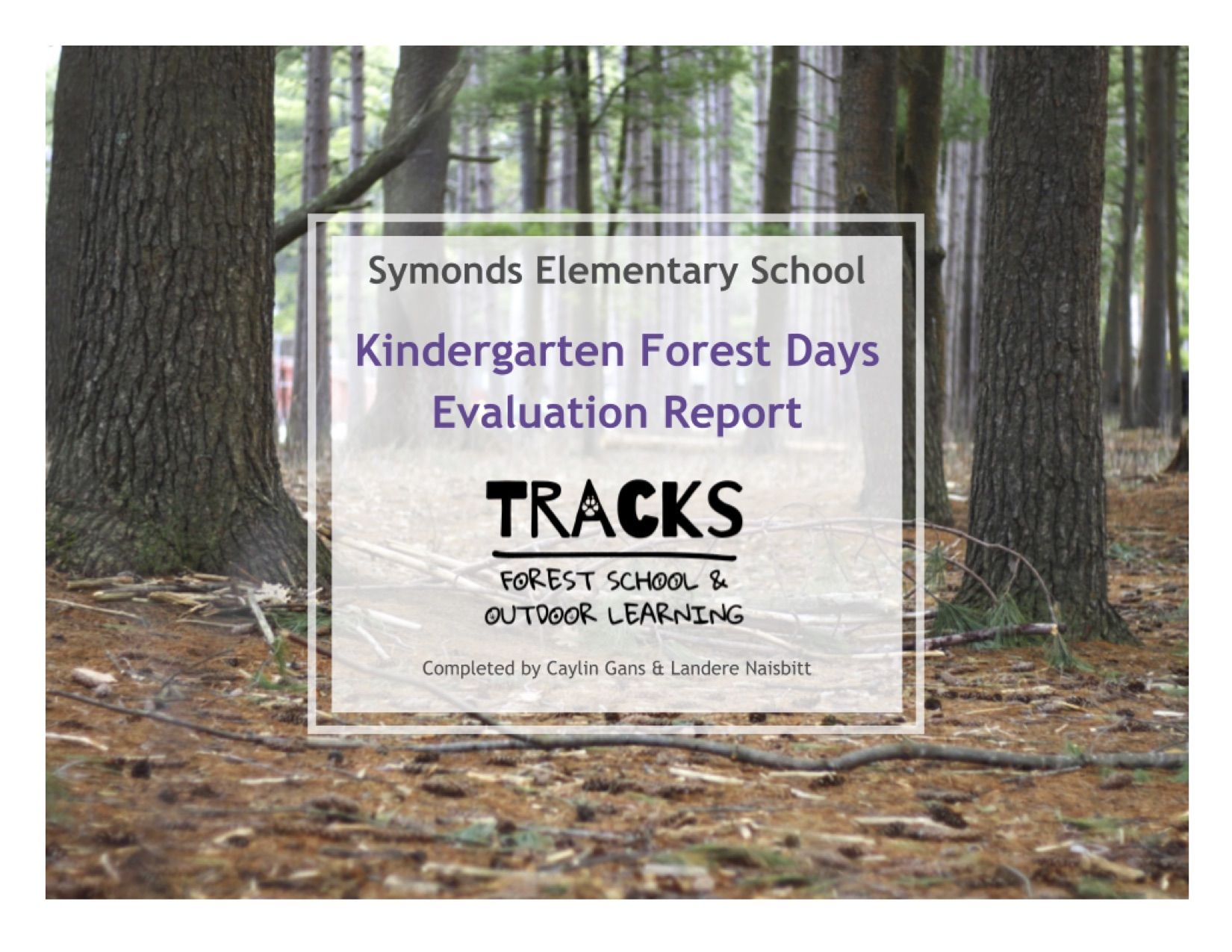
And if you do want to delve deeper into the world of evaluation, I provide more resources in this blog post.
- Finally, sometimes advocacy requires us to move quite far away from our comfort zones. For me it meant starting a business (eeek!). As an educator, I’ve personally found it intimidating at first to navigate the business world as these skills are not often included in our training or other professional learning programs. I’ve also found it hard to translate what I wish to create to the language and values of business which often prioritizes money making over community building…
What helped me overcome my fears was knowing there were others out there doing it too. This is what inspired me to create an online Professional Learning Community for those who run businesses and organizations that are connected with or inspired by the natural world. This could be a school, recreation program, wellness practitioner, and so much more!
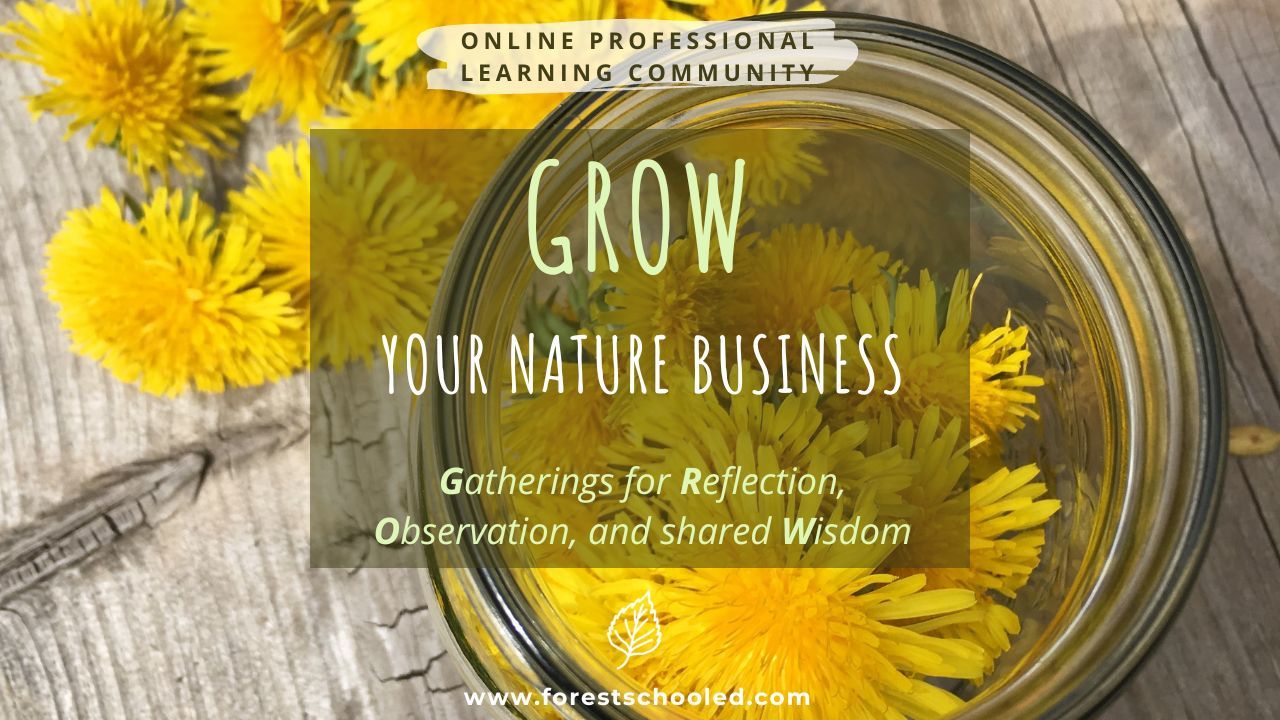
This group is only offered once per year, and the next one begins the end of April 2022. If you consider yourself a Nature entrepreneur, creator, mover and shaker - or someone who wants to gain the confidence to be one, then this community is for you!
As someone who has spent the past several years developing my own methods and models to do this work in a business-minded world, whilst holding on to the values and teachings that are rooted in the natural world, I'm now been asked to mentor others. So I'm offering FREE access to "GROW your Nature Business" to anyone who signs up for my mentorship package, Business AS Nature Connection: For Entrepreneurs who place Land and Community at the Heart, before April 17th 2022.

As always, reach out to me if you have any additional thoughts or questions about advocating for more Nature programs, like Forest School!!
With love,

More Posts
WANT TO GET FOREST SCHOOLED TOO?
Subscribe to my email letters, something special from me to you so we can learn together. Each one is filled with heart-felt stories from the forest, resources you may find useful, and things that hopefully bring a smile too.
Thank you!
© by FOREST SCHOOLED
